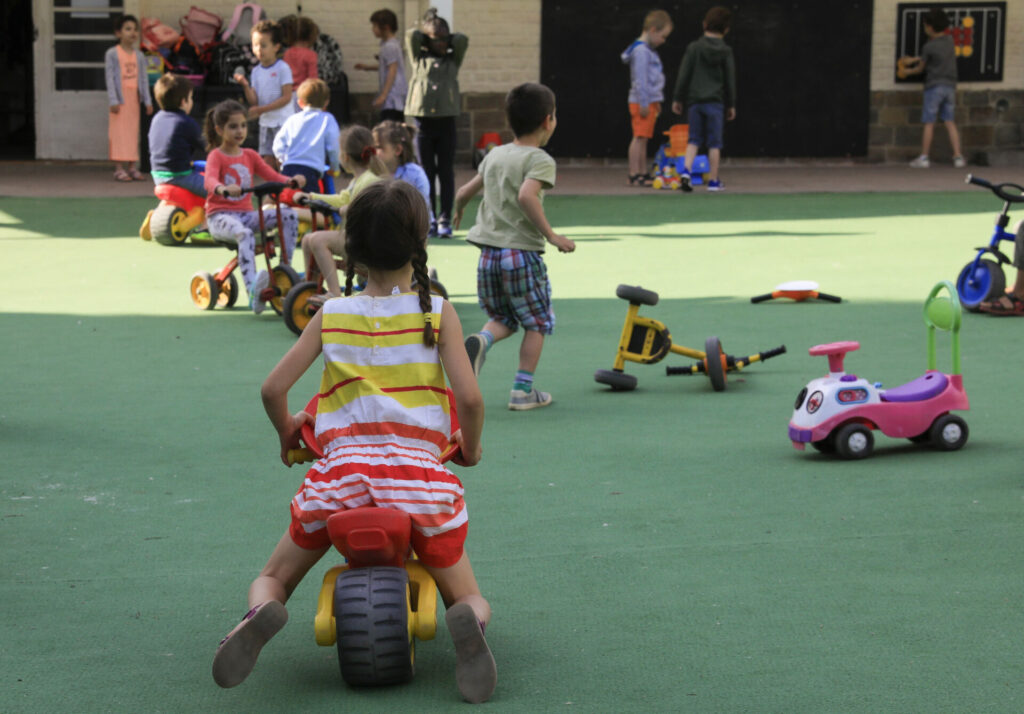While pupils in Flemish schools have finished their two-week Easter holidays, those attending French-speaking schools are only starting their break from next week.
For the third year, French-speaking schools in Brussels and Wallonia started the school year a week earlier than their Dutch-speaking counterparts. As a result, the calendars – with exam periods, holidays and various events – on each side of the country are no longer in sync. In fact, the Easter holidays in both schooling systems do not overlap at all this year.
In Dutch-speaking education, the Easter holidays started on Monday 7 April and will end on Sunday 20 April, with the added bank holiday or Easter Monday on 21 April. For Francophone schools, the Easter holidays are entirely detached from Easter, and will only start a week after the actual holiday on Monday 28 April and end on Sunday 11 May.
"Wallonia mainly restructured its school year to reduce learning loss during the long summer holidays, especially among students from vulnerable socio-economic and socio-cultural backgrounds," sociologist Ignace Glorieux (VUB), who has been researching the subject for over 25 years, told The Brussels Times.
Detaching holidays from Easter
Pupils in French-speaking schools in Belgium start the school year a week earlier and end a week later than in Flemish education. To compensate for the two weeks taken off the summer holidays, an extra week is added to both their autumn and spring holidays.
"Additionally, the Easter holidays are detached from the date of Easter, leading to a more balanced distribution of the three semesters. This way, they are always seven or eight weeks," Glorieux said. "I am very much in favour of this system."
Over the eight-week summer holidays, primary school children forget numeracy skills and their language skills deteriorate – a phenomenon which educational experts call 'summer loss'. "The longer the holidays last, the bigger the loss."

A child holding chocolate Easter eggs. Credit: Belga/Bruno Fahy
While this is the case for all children, Glorieux stressed that it is more evident in children from lower socio-economic classes who receive less or no stimulation at home. As a result, their 'summer loss' is greater in September, which only exacerbates inequality.
"While most middle-class children are stimulated at home and go to summer camps, pick up a language abroad, visit a museum with their parents or read a book, some children do not speak Dutch for two months," Glorieux added. "The first group loses hardly any school knowledge, but the second group falls behind before the school year has even started."
Belgium is among the countries with the longest holidays compared to the rest of Europe. The Netherlands, Germany and Austria all only have six weeks for their summer holidays, for example.
Stuck between systems
Particularly in Brussels, Belgium's split system adds an extra layer of difficulty: some parents work in the French-speaking education system but their children go to a Dutch-speaking school, for example. "This is also the case in Germany and the Netherlands, which are split up into different zones that start on different dates."
Still, having one calendar per country (particularly one as small as Belgium) would be helpful, Glorieux contends. "Especially when you consider that the school calendar is not just about school, but has consequences for many other sectors, as well as parents' work calendars."
"It would be a big overhaul. But if it can happen in Wallonia, I do not see why it wouldn't be possible in Flanders."

